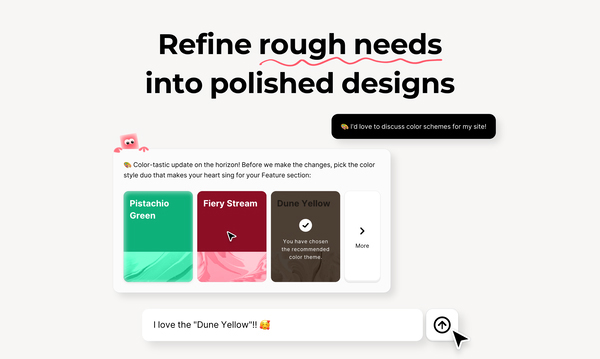Creating a Website in Google
How Creating a Website in Google Works
Creating a Website in Google
In today’s digital age, having a strong online presence is crucial for businesses and individuals alike. One of the most effective ways to showcase your work and attract potential clients is through a website portfolio. However, creating a website portfolio can be a daunting task, especially if you don’t have any design or coding experience.

Creating a Website in Google Challenges
Creating a Website in Google
1. Wix
Wix is a popular website builder that offers a user-friendly interface and a wide range of design templates to choose from. With Wix, small businesses can easily create a professional-looking website without any coding skills. The drag-and-drop editor makes it easy to customize your site to fit your brand and business needs. In addition, Wix offers a free plan that includes Wix branding and a subdomain, making it a great option for small businesses on a tight budget.
2. WordPress
WordPress is one of the most popular content management systems (CMS) in the world, powering millions of websites. While WordPress is known for its flexibility and customization options, it can be a bit intimidating for beginners. However, WordPress.com offers a free plan that allows users to create a basic website with limited customization options. For small businesses looking for more control and flexibility, WordPress.org is a better option, but it requires a hosting plan.
3. Weebly
Weebly is another user-friendly website builder that is perfect for small businesses. With Weebly, users can choose from a wide range of design templates and easily customize their website with drag-and-drop tools. Weebly also offers e-commerce features, making it a great option for small businesses looking to sell products online. While Weebly’s free plan includes Weebly branding and a subdomain, users can upgrade to a paid plan for more features and customization options.
4. Squarespace
Squarespace is a sleek and modern website builder that is perfect for small businesses looking to create a visually stunning website. With Squarespace, users can choose from a range of design templates and customize their site with a drag-and-drop editor. While Squarespace does not offer a free plan, they do offer a 14-day free trial, allowing users to test out the platform before committing to a paid plan.
5. Shopify
Shopify is a popular e-commerce platform that allows small businesses to create an online store. While Shopify is primarily geared towards e-commerce, they also offer a website builder that allows users to create a basic website for their business. With Shopify, users can choose from a range of design templates and customize their site with drag-and-drop tools. While Shopify does not offer a free plan, they do offer a 14-day free trial, allowing users to test out the platform before committing to a paid plan.
Web hosting providers offer various types of hosting plans and services to accommodate the needs of different websites. From shared hosting to dedicated servers, there are several options available for individuals and businesses looking to host their websites online.
Shared hosting is the most popular and affordable type of web hosting. With shared hosting, multiple websites are hosted on the same server, sharing its resources such as CPU, RAM, and storage space. This type of hosting is ideal for small websites with low to moderate traffic. However, shared hosting may not be suitable for websites that require high performance or resource-intensive applications.
VPS hosting, or Virtual Private Server hosting, is a step up from shared hosting. With VPS hosting, websites are hosted on virtual servers that mimic dedicated servers. Each website on a VPS server has its own dedicated resources, such as CPU, RAM, and storage space. This type of hosting is ideal for websites that require more control and flexibility but do not need a dedicated server.
Dedicated server hosting is the most powerful and expensive type of web hosting. With dedicated server hosting, websites have their own physical server dedicated solely to their needs. This type of hosting offers maximum performance, security, and customization options. Dedicated server hosting is ideal for websites with high traffic volumes, e-commerce websites, and large enterprises.
Cloud hosting is a relatively new type of web hosting that utilizes cloud computing technology to host websites on virtual servers. With cloud hosting, websites are hosted across multiple servers, providing scalability and flexibility. Cloud hosting is ideal for websites that experience fluctuating traffic levels or require high availability and uptime.
Managed hosting is a type of hosting service in which the web hosting provider manages and maintains the server infrastructure for the website owner. With managed hosting, users do not have to worry about server maintenance, security updates, or technical issues. This type of hosting is ideal for users who do not have the technical expertise or resources to manage their own servers.
There are several factors to consider when choosing a web hosting provider, such as reliability, speed, security, scalability, and customer support. Reliability is critical for ensuring that your website is always accessible to visitors. Speed is crucial for providing a positive user experience and improving search engine rankings. Security is essential for protecting your website from cyber threats and data breaches. Scalability is important for accommodating the growth of your website and handling increases in traffic. Customer support is vital for assisting with technical issues and ensuring that your website remains online and operational.
In addition to hosting services, web hosting providers often offer additional features and services, such as domain registration, website builders, one-click installation of applications, SSL certificates, email hosting, and backup services. These additional features can enhance the functionality and security of your website and simplify the management of your online presence.

Creating a Website in Google FAQ
Creating a Website in Google
Conclusion
Creating a successful membership site requires the right tools and technology. By choosing a reliable website builder that is specifically designed for membership sites, you can create a professional-looking and feature-rich membership site that meets your needs and goals.
The website builders mentioned in this article, including MemberPress, Kajabi, Teachable, and Squarespace, offer a range of features and customization options to help you create a successful membership site. Whether you’re looking to create online courses, restrict access to content, or accept payments online, these website builders have everything you need to get started.
Before choosing a website builder for your membership site, make sure to consider your specific needs, budget, and technical skills. With the right website builder, you can create a successful and profitable membership site that engages your audience and generates recurring revenue.


